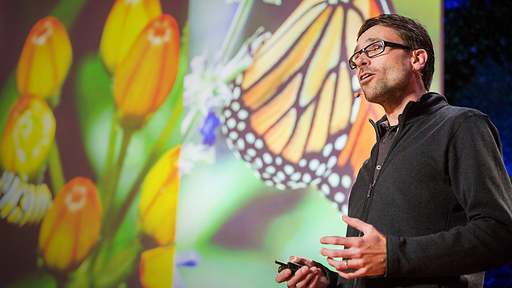The other butterfly effect: A youth reporter finds out how monarchs fight their own parasites
Jaap de Roode is a biologist who studies parasites and their hosts — particularly Monarch butterflies. At TEDYouth 2014, he spoke about Monarch butterflies, their self-medicating ingenuity — and what that ingenuity can help humans discover. Lubna Batool, an 11th-grade New Yorker, was fascinated. On site at TEDYouth, with a dozen monarch butterflies flapping about […]
Continue reading
